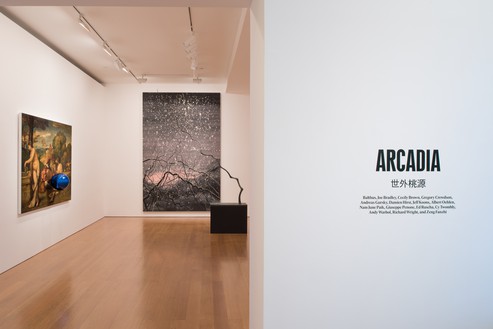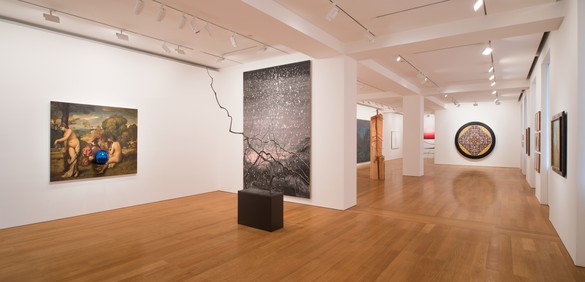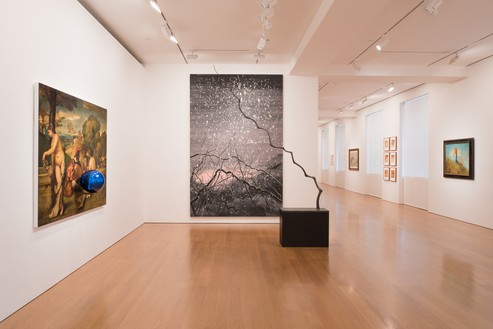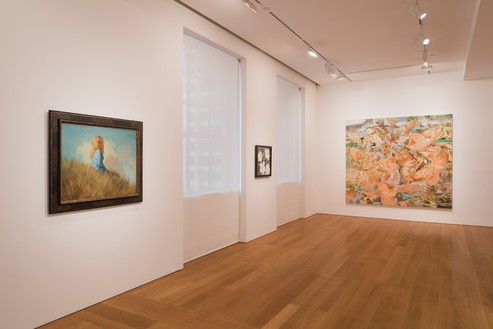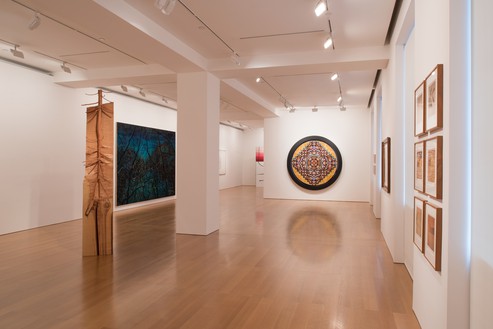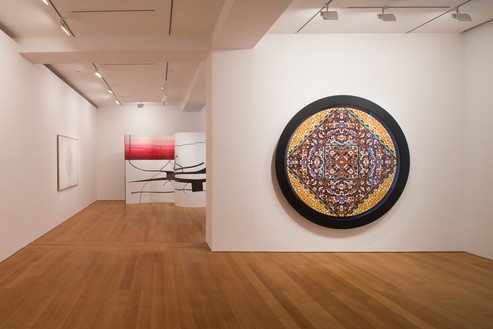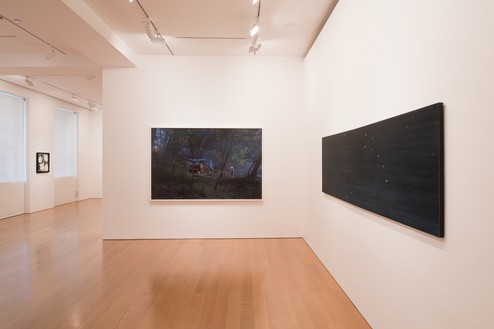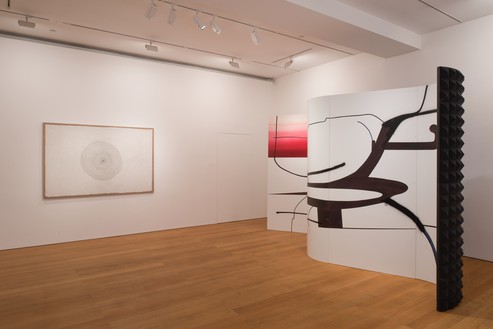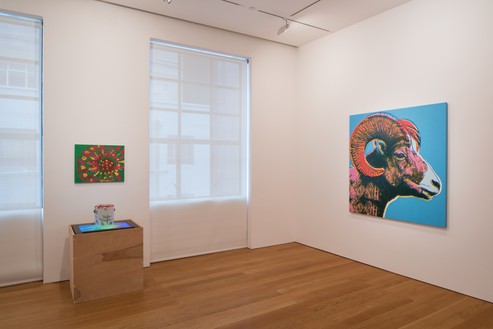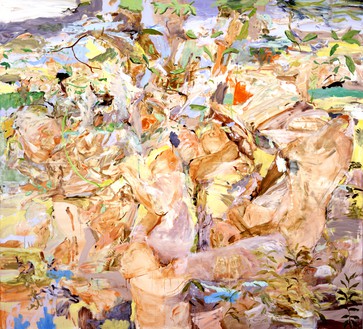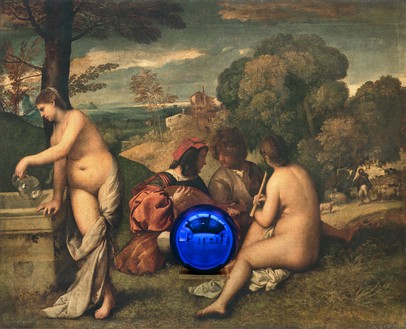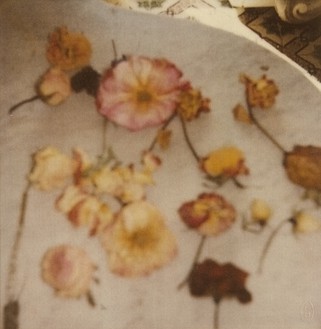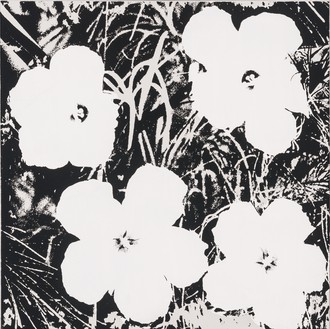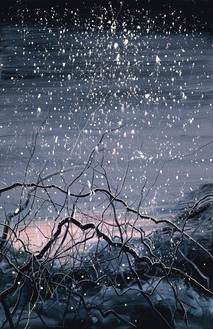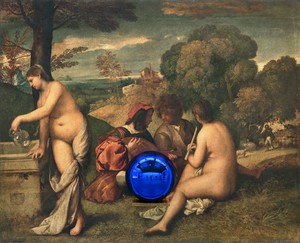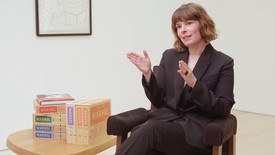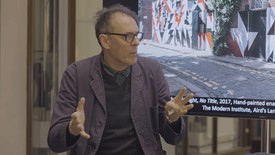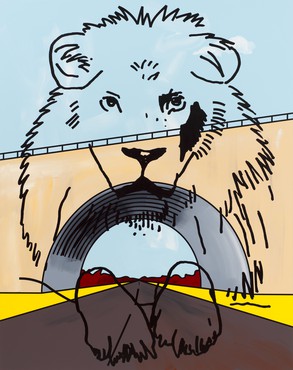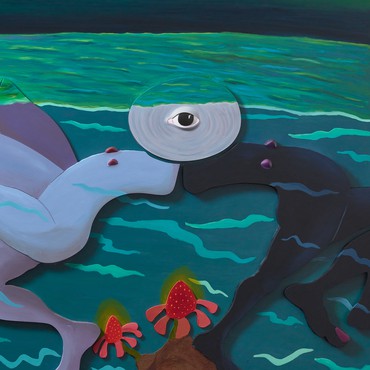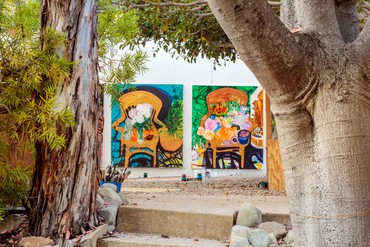About
Et in Arcadia ego: Even in Arcadia, there am I.
—Nicolas Poussin
Gagosian is pleased to present Arcadia, an exhibition of landscapes, both real and imagined, by modern and contemporary gallery artists.
The term “Arcadia” originated in ancient Greece, referring to the inland reaches of the Peloponnese where shepherds lived, far from the sea. The term took on a symbolic meaning during the Hellenistic era, invoking rural life as an escape from the moral corruption of the dense, bustling metropolis. Subsequently, this pastoral paradise became an artistic preoccupation for the ages. Idyllic “Arcadian” landscapes were described by Virgil, in his Eclogues, and Cy Twombly scratched the word into his paintings. The sixteenth-century Italian explorer Giovanni da Verrazzano applied the name “Arcadia” to the entire North American Atlantic coast north of Virginia, Twombly’s birthplace. Photographs of Twombly’s daily life, included in this exhibition, range from his time as a student at Black Mountain College in the early 1950s until his death in 2011, and record the verdant landscapes of Virginia and coastal Italy, close-up details of ancient buildings and sculptures, studio interiors, and still lifes of objects and flowers. The entire frame of Andreas Gursky’s Krefeld (1989) is filled with sylvan detail; and Jeff Koons’s Gazing Ball (Titian Pastoral Concert) (2016), in dialogue with the Italian Renaissance master, reflects the viewer, the painting, and its surroundings in a blue glass gazing ball. In a more dystopic vein, Gregory Crewdson’s cinematic stagings present cold and deserted landscapes with traces of human life; while Zeng Fanzhi’s darkly serene vista is enlivened by calligraphic strokes and splatters.
The Arcadian theme is explored further in works by Balthus, Joe Bradley, Cecily Brown, Damien Hirst, Albert Oehlen, Nam June Paik, Giuseppe Penone, Edward Ruscha, Andy Warhol, and Richard Wright. Despite their formal and conceptual differences, all reveal a profound fascination with the natural world, its correspondence to an interior world, and the artistic compulsion to depict it, whether via figuration or abstraction, narrative unity or fragmentation. Arcadia traces the persistence of the theme in recent years, uniting many significant modern and contemporary iterations of a timeless artistic discourse.
Et in Arcadia ego:即使在阿卡迪亞,我也在。
──尼古拉斯‧普桑
高古軒畫廊欣然呈獻「世外桃源」展覽 ,由畫廊衆現當代藝術家描繪現實及虛構的景色,展出一系列風景相關的作品。
阿卡迪亞(Arcadia)起源於古希臘時期,意指牧羊人所聚居的遠離海濱地區,亦即伯羅奔尼撒 (Peloponnese)內陸區域。在希臘化時代,阿卡迪亞象徵田園生活,遠離道德腐敗、人口稠密的繁華都市。這個世外桃源繼而成爲世代藝術家們所探索描繪的主題,例如維吉爾(Virgil)在《牧歌集》中描述阿卡迪亞的田園風光,而塞‧托姆布雷(Cy Twombly)也在畫作中塗抹出「Arcadia 」一字。十六世紀意大利探險家喬瓦尼‧達‧韋拉扎諾(Giovanni da Verrazzano)將維珍尼亞以北的整片北美洲大西洋海岸喚作「阿卡迪亞」,而維珍尼亞正是托姆布雷的出生之地。是次展覽中展出的托姆布雷攝影作品記錄其日常生活,橫跨1950年代初他在黑山學院(Black Mountain College)的求學時期,直至其於2011年逝世,照片拍下維珍尼亞的青翠景色和意大利海岸的風景、古代建築和雕塑的特寫、工作室內部,以及物品和花卉靜物畫。安德烈亞斯‧古爾斯基(Andreas Gursky)的作品《克雷費爾德(Krefeld)》(1989年)全幅充盈着叢林細節;通過與意大利文藝復興大師對話,傑夫‧昆斯(Jeff Koons)的《凝視球 (提香田園合奏)》(2016年)將觀者、畫作及周遭環境折射於藍色玻璃凝視球中。在異位的演繹中,攝影家格雷戈里‧克魯森(Gregory Crewdson)影片質感的作品呈現出荒蕪淒涼、罕無人跡的風景;而曾梵志深沉寧靜的遠景則藉由書法的筆觸和潑濺顯得生機勃勃。
展覽中其他諸位藝術家作品也深入探索田園景色的主題,包括巴爾蒂斯(Balthus)、喬‧布萊德利(Joe Bradley)、塞西莉‧布朗(Cecily Brown)、達米恩‧赫斯特(Damien Hirst)、阿爾伯特‧厄倫(Albert Oehlen)、白南準、吉塞普‧佩諾內(Giuseppe Penone)、愛德華‧魯沙(Edward Ruscha)、安迪‧沃荷(Andy Warhol)及理查‧賴特(Richard Wright)。儘管這些作品的形式和概念截然不同,卻皆揭示藝術家對大自然的濃厚興趣、大自然與內心世界的相互呼應,也反映出藝術家描繪自然的創作渴望,無論是透過具體或抽象的方式。「世外桃源」展覽追溯田園風景題材近年的持續表現,展現這個經典藝術探討的現代及當代演繹方式。
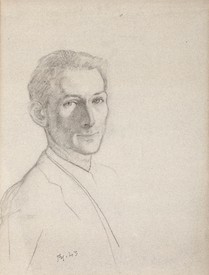
Between Shadow and Light
Scholar and researcher Yves Guignard, who is working on Balthus’s archives for a revision of the Balthus catalogue raisonné, examines the artist’s engagement with drawing, arguing for a more concerted attention to these works than scholarship has paid them.
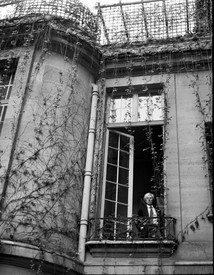
In Conversation
Christopher Makos and Jessica Beck
Andy Warhol’s Insiders at the Gagosian Shop in London’s historic Burlington Arcade is a group exhibition and shop takeover that feature works by Warhol and portraits of the artist by friends and collaborators including photographers Ronnie Cutrone, Michael Halsband, Christopher Makos, and Billy Name. To celebrate the occasion, Makos met with Gagosian director Jessica Beck to speak about his friendship with Warhol and the joy of the unexpected.
Andy Warhol: Silver Screen
In this video, Jessica Beck, director at Gagosian, Beverly Hills, sits down to discuss the three early paintings by Andy Warhol from 1963 featured in the exhibition Andy Warhol: Silver Screen, at Gagosian in Paris.
In Conversation
Richard Wright and Martin Clark
Richard Wright and Martin Clark, director of Camden Art Centre, London, discuss Wright’s latest body of work, recent commissions, and new monograph, which provides a comprehensive overview of his practice between 2010 and 2020.
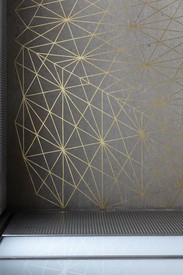
No Title
In an excerpt from his forthcoming monograph, Richard Wright pens a personal and philosophical text about painting.
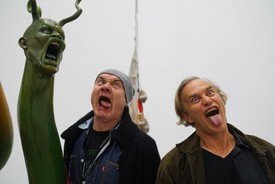
Truth Revealed: Damien Hirst and James Fox on Ashley Bickerton
In conversation with James Fox, Damien Hirst reflects on the artwork of his longtime friend.
